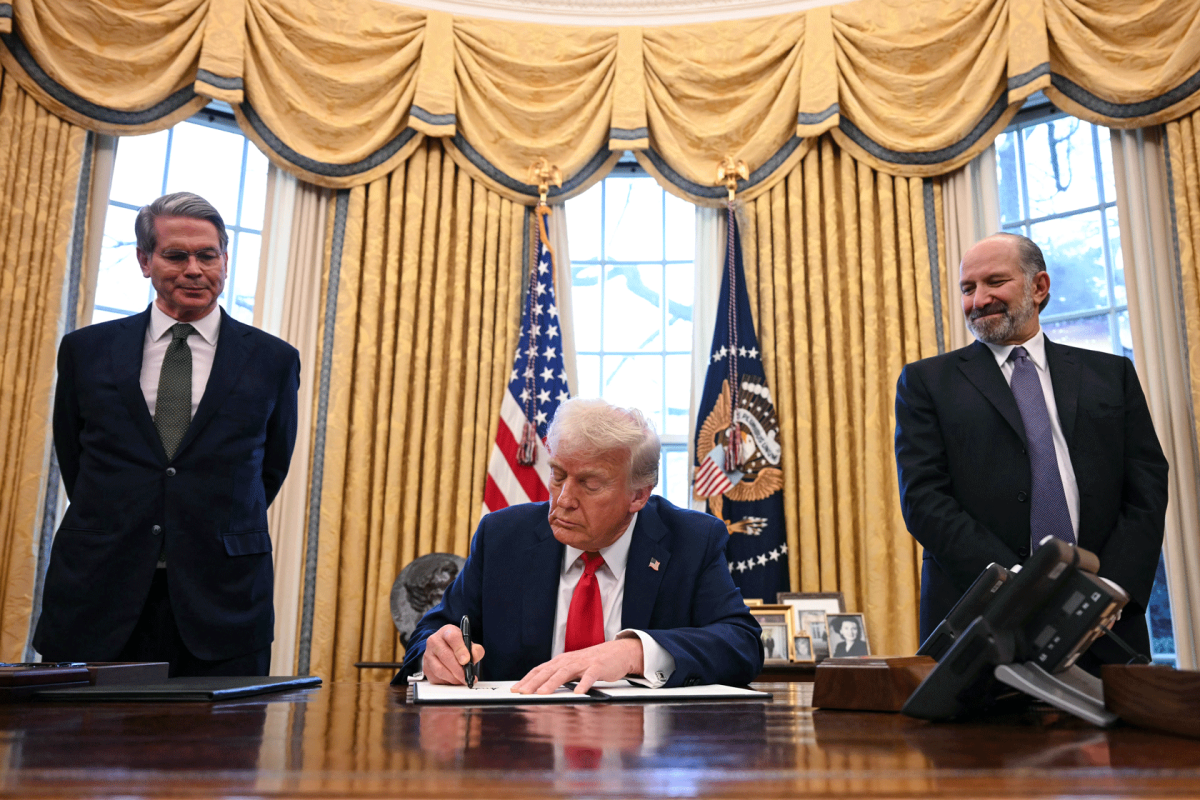Being a leader can be intimidating, even to most confident of people. With hundreds of pairs of eyes judging every move you make, it is easy to buckle down in fright. But a leader is not allowed to do this—no, virtually from day one, a leader is expected to take charge of his or her post and begin the improvement of his or her newly adopted institution.
With just a year passing by since Mr. Rein was announced the new leader of our school, it is safe to say that he is settled and well-adjusted to life at US. It was time for us, the students, to personally meet with him and ask questions relevant to the school. During an interview last Thursday after school, Mr. Rein explained some of the first actions he took when he came into office as headmaster.
“The first action I took,” Mr. Rein began with a smile, “was encouraging the creation of our Senior and K-2 buddy program…They don’t just meet on Founder’s Day. The seniors meet periodically with the same buddy all year so that they can really develop a relationship, and the little guys have someone to look up to. Seniors get a reminder of what it was like when they started their US journey and the importance of caretaking.”
Mr. Rein emphasizes the relationship-building aspect of the Senior and K-2 buddy program by telling a story. “A little first grader came up to me and said, ‘Hey, Mr. Rein!’ I remember thinking how funny that was because it was late, and I said, ‘Boy, what are you doing here?’ He replied, ‘My Senior is in the play and he said I could go back-stage and talk to him afterwards.’ To know that both the Senior and the little guy were benefiting from this program was wonderful.”
Behind the scenes, Mr. Rein had a busy first six months. He sat down and talked with every faculty member, staff member, and member of the board of trustees who was available for at least half an hour to develop a better understanding of the US community.
When asked how he had to adjust to fit the needs of the school, Mr. Rein gave a rather surprising answer. “Part of it is sort of obvious: you have a different geography, different weather, different traditions…there is always a natural adjustment. A lot of the most interesting adjustments in addition to the natural cultural ones involved having two campuses.” Mr. Rein went on to explain how he switches his focus between campuses daily: Monday at Hunting Valley, for example, and then Tuesday in Shaker, and Wednesday in Hunting Valley, and so on.
Mr. Rein continued, “I would say the boys piece versus the co-ed piece was actually not that [significantly different]. I’ve been in five schools over the course of my career, and what I’ve come to believe is that there are three types of independent schools: good, very good, and great independent schools.”
Mr. Rein elaborates by explaining how the religious, single-sex, or traditional aspect of a school does not define that school. Rather, “It’s the characteristics of a curious and hard-working student body, a phenomenal faculty committed to every student in their care, and a well-resourced place that has the ability to provide so much for the students. Those pieces being consistent across some of the schools I’ve worked at connect them much more closely than a religious or unisex aspect.”
I began to shift the conversation by asking Mr. Rein a more personal question.
“What is the definition of a headmaster to you?” I asked, adjusting my seating on one of Mr. Rein’s armchairs in his office. Mr. Rein, sitting directly in front of me with one foot resting on his knee, thought for a moment.
He then replied, “I think a headmaster is someone who is ideally a model for the values of the institution, someone who can connect the history of the institution to the world we live in today…[Being a headmaster means being able] to look five, ten years down the road and trying to make decisions that will strengthen the school for what is coming and recognizing that in the short-term, they might seem odd and inconsequential…I don’t look at decisions and ask, ‘Will this affect a third or eighth grader.’ I ask, ‘Will this be best for the US boy?’”
Mr. Rein then went to describe how, no matter who the headmaster of the school is, certain broad values and ideals will always remain constant while specific details vary depending on the interpretation of the headmaster. “Many organizations would have trouble if there is a complete and total departure of what was happening before. The reason a place lasts 126 plus years is because of the maintenance of its core values.”
I wrapped up the interview with a question that I believe many other people have been wondering for a long time—does Mr. Rein have any thoughts of teaching a class at US?
Smiling, Mr. Rein began, “I have thought about teaching a class. I was a history teacher and an economics teacher before coming to US…To me as a teacher, the number one responsibility is the boys in your class. Being the head of a school is probably one of the busiest jobs out there, and one of the things I want to be conscious of if I’m going to teach a class is if I’m doing the best I can for the boys in the class. So for me to go back to the classroom, I would have to feel confident that I’m comfortable enough with my job and life to say not just that I like teaching—I know I like teaching—but to say I’m doing this because I think I can provide a service to you as a teacher that is equal to what all the other faculty members can provide.”
Mr. Rein has clearly stepped up to the demands of the school and successfully guided it over the past year to where he thinks it needs to be in response to the surrounding world. While focusing on maintaining the core beliefs of the school, he has managed to incorporate his own ideas and values into life at US. Mr. Rein has begun leaving his mark on US, which will inevitably remain with the school for years to come, long after every student currently in the upper school graduates.






